 January 2023 in “Theranostics”
January 2023 in “Theranostics” A patch with curcumin-zinc can improve hair growth and health by delivering beneficial particles to the skin, increasing hair follicles, and reversing effects of a hair loss hormone.
 May 2024 in “World Journal Of Advanced Research and Reviews”
May 2024 in “World Journal Of Advanced Research and Reviews” Low iron levels are strongly linked to chronic hair loss in women.
1 citations,
July 2022 in “Clinical, Cosmetic and Investigational Dermatology” Taohong Siwu Decoction may help treat hair loss by targeting multiple genes and pathways.
 22 citations,
May 2013 in “Experimental and Therapeutic Medicine”
22 citations,
May 2013 in “Experimental and Therapeutic Medicine” Minoxidil improves quality of life for women with hair loss.

research Acne
58 citations,
January 1997 in “Dermatologic Clinics” Acne significantly affects mental health and quality of life, with research suggesting hormonal and genetic factors in its development and emphasizing early treatment to prevent scarring.
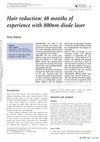 20 citations,
December 2003 in “Journal of Cosmetic and Laser Therapy”
20 citations,
December 2003 in “Journal of Cosmetic and Laser Therapy” An 800nm diode laser safely and effectively reduces hair for about 8 months, with most patients satisfied and few side effects.
 20 citations,
January 1979 in “JAMA”
20 citations,
January 1979 in “JAMA” Fiber implantation for baldness is not recommended because it causes many problems and doesn't work well.
January 2024 in “Bulletin of Medical Science” Pantotherapy is more effective for treating androgenetic alopecia than darsonvalization.
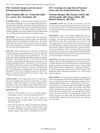 September 2006 in “Plastic and Reconstructive Surgery”
September 2006 in “Plastic and Reconstructive Surgery” The SGAP flap effectively treats large sacral pressure sores with good results and minimal complications.
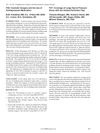 September 2006 in “Plastic and Reconstructive Surgery”
September 2006 in “Plastic and Reconstructive Surgery” Outpatient aesthetic and reconstructive surgeries are about equally profitable in Academic Health Centers and Ambulatory Surgery Centers when time is considered, but dedicated surgery centers are generally more profitable.
 June 2023 in “The journal of sexual medicine”
June 2023 in “The journal of sexual medicine” The treatment helped a transgender woman stop drinking, improved her mental health, and reduced her gender dysphoria.
3 citations,
November 2022 in “International journal of environmental research and public health/International journal of environmental research and public health” Ethnic Indian women with PCOS often have early symptoms, delayed diagnosis, and need better information and support for treatment and lifestyle management.
 66 citations,
July 2007 in “Journal of Molecular Medicine”
66 citations,
July 2007 in “Journal of Molecular Medicine” Stress increases certain chemicals in the skin and nerves, which might worsen skin conditions.
 8 citations,
January 2016 in “European Journal of Plastic Surgery”
8 citations,
January 2016 in “European Journal of Plastic Surgery” PRGF treatment is safer and more effective for hair loss than topical minoxidil.
 1 citations,
February 2022 in “Case reports in endocrinology”
1 citations,
February 2022 in “Case reports in endocrinology” An unusual growth of Leydig cells in a woman's ovaries caused her excessive hair growth, which was treated successfully with surgery.
 13 citations,
August 2005 in “Dermatologic Clinics”
13 citations,
August 2005 in “Dermatologic Clinics” Doctors should consider psychological factors when treating skin conditions and work with mental health experts.
 194 citations,
March 2003 in “American Journal of Pathology”
194 citations,
March 2003 in “American Journal of Pathology” Stress stops hair growth in mice by causing early hair growth phase end and harmful inflammation through a specific nerve-related pathway.
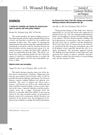 February 2003 in “Journal of Cutaneous Medicine and Surgery”
February 2003 in “Journal of Cutaneous Medicine and Surgery” Fine hairs improve male pattern baldness treatment, alopecia areata causes remain unknown, and hair can recover from dye damage over time.
 58 citations,
September 1991 in “British Journal of Dermatology”
58 citations,
September 1991 in “British Journal of Dermatology” Women with AGA often face anxiety, depression, and low self-esteem; psychological support is important.
 53 citations,
May 2010 in “PubMed”
53 citations,
May 2010 in “PubMed” Spironolactone helps regrow hair in women with hair loss.
 94 citations,
January 2000 in “The Journal of Clinical Endocrinology and Metabolism”
94 citations,
January 2000 in “The Journal of Clinical Endocrinology and Metabolism” Spironolactone most effective for hirsutism, but has side effects.
 9 citations,
January 1997 in “Gynecological Endocrinology”
9 citations,
January 1997 in “Gynecological Endocrinology” The document concludes that treating androgen excess needs patience, managing expectations is important, and many drugs used are not officially approved, suggesting cosmetic options for mild cases.
 4 citations,
November 2021 in “Cancers”
4 citations,
November 2021 in “Cancers” The document concludes that understanding and managing hair loss in cancer patients is important, and more research is needed for better treatments.
 6 citations,
December 2016 in “Springer eBooks”
6 citations,
December 2016 in “Springer eBooks” Environmental stressors like UV radiation, pollution, and extreme temperatures can damage skin and lead to diseases and aging.
 63 citations,
March 2000 in “Annals of clinical psychiatry”
63 citations,
March 2000 in “Annals of clinical psychiatry” Some psychiatric medications can cause hair loss, but it usually grows back after adjusting the medication.
 3 citations,
August 2013 in “International journal of research in Ayurveda and pharmacy”
3 citations,
August 2013 in “International journal of research in Ayurveda and pharmacy” Hairbac tablet and oil significantly improve hair texture, density, and reduce hair loss without side effects.
 16 citations,
May 2003 in “International Journal of Dermatology”
16 citations,
May 2003 in “International Journal of Dermatology” Trichotillomania, a disorder where people compulsively pull out their own hair, often starts around age 12, is more common in adult females, and can be treated with behavior therapy and medication.
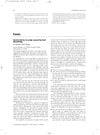 July 2007 in “Clinical Risk”
July 2007 in “Clinical Risk” A woman got severe scalp burns from a salon's improper hair bleaching treatment.
 44 citations,
July 2004 in “Archives of Dermatology”
44 citations,
July 2004 in “Archives of Dermatology” Finasteride for hair loss has minimal impact on sexual function.
 5 citations,
December 2012 in “Journal of Dermatology”
5 citations,
December 2012 in “Journal of Dermatology” Wigs greatly improve life quality for hair loss patients.


























